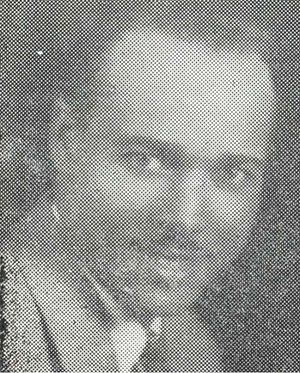O'Day Short facts for kids
O'Day H. Short was an African American engineer who faced a terrible tragedy in Fontana, California. In 1945, he bought land and built a house in an area where African Americans were not usually allowed to live. After moving in, his family received threats. On December 16, 1945, their house exploded. His wife, Helen, and young children, Barry and Carol Ann, died from their injuries. O'Day himself passed away a month later. This event highlighted the serious issue of racial segregation at the time.
Contents
Life in Fontana and Segregation
During the 1930s, a time known as the Dust Bowl, many families moved west to California. About 5,000 white families found jobs in Fontana, a town known for Kaiser Steel. However, they brought with them strong ideas about keeping people of different races separate. In Fontana, African Americans were generally allowed to live north of Base Line Road, but not south of it.
O'Day H. Short, possibly because he and his family had lighter skin, was able to buy a five-acre piece of land on Randall Avenue and Pepper Street, which was south of Base Line Road. In the fall of 1945, while their new home was still being finished, the Short family moved in.
Threats and Warnings
As people in the neighborhood realized the Short family was African American, some neighbors became worried. A local sheriff's deputy even told O'Day Short that he was "out of bounds," meaning he was living in the wrong area. The local white Chamber of Commerce offered to buy the property back from him for the full price he paid. The person who sold the land to Short also warned him that a local "vigilante committee" might use violence.
In response to these threats, O'Day Short reached out for help. He contacted the FBI and local African American newspapers to share his story and seek protection.
The Explosion and Investigation
On December 16, 1945, the Short family's house suddenly exploded while they were inside. A kind neighbor quickly took the injured family to Kaiser Permanente Hospital. O'Day Short survived for about a month after the explosion. He died shortly after being told by the District Attorney that none of his family members had survived.
Authorities first claimed the explosion was caused by a faulty oil lamp. However, the group of people investigating the death, called a coroner's jury, doubted this explanation. They decided the fire's cause was unknown. They were not told about the threats Short had received because the coroner thought those reports were just rumors. An investigator named Paul T. Wolfe, hired by the NAACP, looked into the fire. He found that the lamp was mostly undamaged and concluded that someone had deliberately set the fire from outside the house.
Aftermath and Legacy
African American newspapers across the country strongly condemned the deaths, calling them a great injustice. Groups like the ACLU and the NAACP organized large gatherings in Los Angeles and San Bernardino. More than 6,000 people attended these rallies, demanding a full investigation into what happened to the Short family.
Today, the land where the Short family's home once stood is now the site of Randall Pepper Elementary School. People in the community are working together, holding events and signing petitions, to rename the school or create a memorial to honor O'Day and the Short family.
It would be another 20 years before another African American family would live in downtown Fontana, showing how deeply this event affected the community.
See also
- Residential segregation
 | Misty Copeland |
 | Raven Wilkinson |
 | Debra Austin |
 | Aesha Ash |


